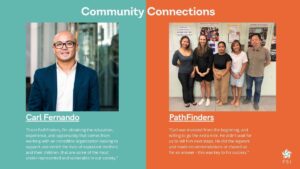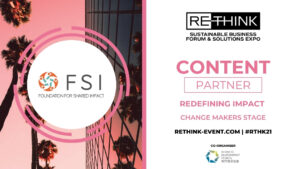Hello readers,
The COVID-19 pandemic was a lesson on various things. In the aspect of work, it made possible the largest social experiment of remote work, and at the same time, it exposed the social and economic inequalities that have put the less privileged populations at even more risk of health and safety, unemployment, and poverty.
As more companies around the world are adopting (or planning to adopt) the principle of stakeholder capitalism to create long-term value for not just shareholders, but also other stakeholders such as employees, suppliers, customers, and communities, we hope this newsletter can serve as an opportunity to promote dialogues on the human-centred future of work. Essentially, what should a future of work look like in order to create sustainable and equitable societies, where humanity can flourish?
Take a deep dive with us as we explore the topics below in this three-part newsletter series. If you have any insights or good practices to share, get in touch with us on info@shared-impact.com!
- The Human-Centred Future of Work
- Helping Your Employees Find Purpose in Their Work
- Preventing Burnout
- Employee Autonomy
- Shorter Work Week
- Hybrid Workplace
- Universal Social Protection

The Human-Centred Future of Work
The COVID-19 pandemic has shown that while some were in more privileged positions to be able to work from home and therefore stood a lower risk of infection, many workers, such as those in healthcare and informal sectors, had to risk their health and safety for public health or simply to put food on the table. The pandemic has also set back great progress made in advancing the UN Sustainable Development Goals, and one is gender equality. Women continue to be responsible for the bulk of domestic and care work: In 2020, women in developing and developed countries provided 75% and 65% of childcare work respectively, adding an additional month’s worth of unpaid work to their full-time schedule. Migrant workers, despite being indispensable to ensuring food supplies worldwide, were left even more vulnerable to exploitation, poverty, health hazards, and food insecurity due to business closures and restrictions to movement.
As countries adopt green recovery measures to revive their economies in ways that could also mitigate the effects of climate change, we must not lose sight of a human-centred agenda that is, to quote the ILO Global Commission on the Future of Work, based on investing in people’s capabilities, institutions of work, and decent and sustainable work. Massive unemployment as a result of increased automation is not inevitable. At the end of the day, how many workers are replaced by robots, whether workers are given the opportunities and resources to upskill, and how to utilize technology for it to augment human capabilities, are all decisions to be made by humans.

The ideal workplace would not only be conducive to employee productivity and engagement as well as organizational performance, but it would also build more sustainable and equitable communities. The key is to design and implement policies that address the needs of different employees, representing different stakeholders in society. And that is why it is important to have a board and a senior manager team that are diverse in gender, ethnicity, race, culture, expertise, abilities, and intelligence. Just as important, the leadership team needs to be participatory, inclusive, authentic, and demonstrating servant leadership. With the representation of different stakeholders in society, leadership teams are better equipped to implement policies to support their employees, whether it is childcare support, healthcare coverage, or making the workplace accessible and inclusive for people with disabilities. Additionally, national and international policies and regulations, as well as cross-border partnerships, are more important than ever in the protection of workers’ rights.

Helping Your Employees Find Purpose in Their Work
People wanting to find purpose in their work is nothing new, but the COVID-19 pandemic has prompted more people to reconsider the kind of work they do, and to reflect on their purpose in life. Similar to employees with more autonomy in high-stress jobs, those who live their purpose at work are healthier and more resilient. For many, finding a sense of fulfilment at work enhances quality of life and wellbeing in a way that cannot be achieved through working fewer hours alone. From the employer’s perspective, the alignment of employees’ purpose with the organization’s purpose is beneficial to employee engagement, retention, and loyalty. For purpose-driven companies, that translates to more social impact and building better communities.
But how can employers and managers help their employees find purpose and a sense of belonging at work, especially for companies that don’t have a clearly defined social mission? Ask yourself these questions: What impact does your company have on society and the environment, and what kind of positive impact does it (aim to) create? Do your managerial-level staff use the company’s social mission to guide decision-making? Does your company invest in tracking employee commitment to organizational purpose, or purpose-washing marketing campaigns as disingenuous attempts at appearing purpose-driven? Does your company offer leaders and employees the opportunities to engage in meaningful skills-based volunteering opportunities? Does your company work towards fostering psychological safety, so that people feel safe to speak up about their mistakes and concerns, thereby improving individual and organizational performance and learning, diversity, creativity and innovation? And on that, do your senior leaders have the emotional intelligence to nurture a work culture of candour and honesty, where staff across all levels find it safe to offer honest feedback and ask for support?

Everyone has the ability to live a purpose-driven life, within or outside the workplace. At FSI, we have seen many such Corporate Participants in our Community Connections Program, who volunteer their skills to help social impact organizations address capacity building needs that they otherwise would not have the resources to do. Through Community Connections, we are also helping these Corporate Participants to build their social impact journey. Having a “strategic side gig” will enable employees to expand their field of vision, and build the knowledge, skills, and connections that could contribute to the growth of themselves and their organizations. Get in touch with us if you would like to learn more about Community Connections!
Stay tuned for Part II of this newsletter series on improving employee wellbeing!

Foundation for Shared Impact (FSI) will be the content partner for Day 1 of the Change Makers Stage at this year’s ReThink event. Learn more about our “Redefining Impact” panel discussions on redefining CSR, the power of data and technology in enacting change, effective philanthropy, and impact-driven partnerships here!
Use our promo code FSI21 to enjoy the super early-bird rate.



